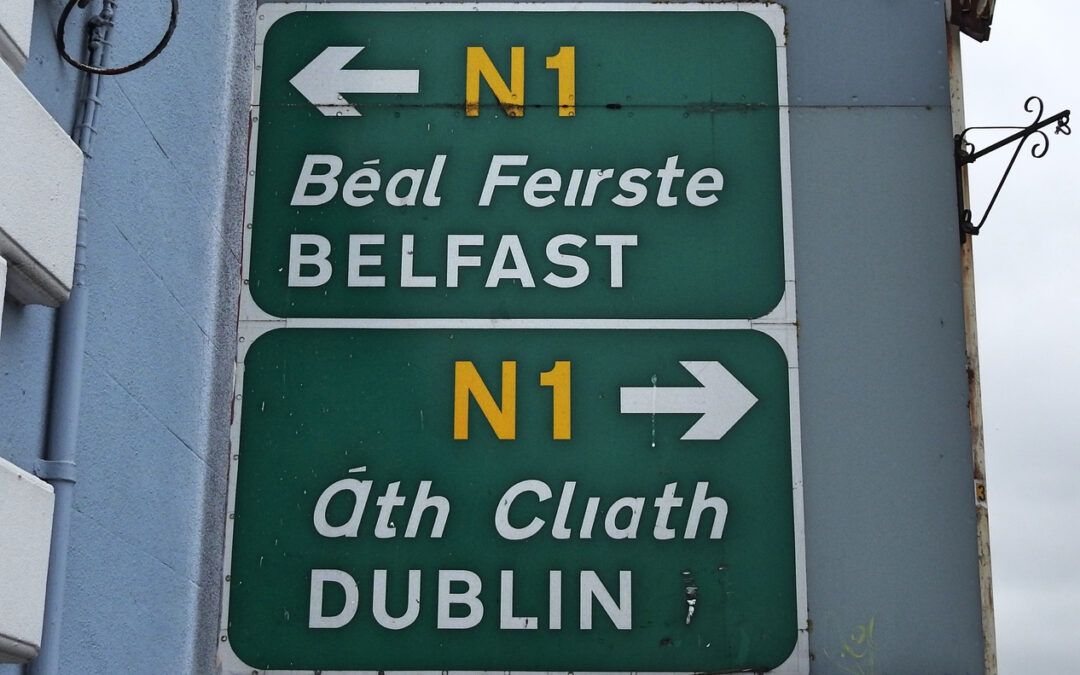
The Eternal Triangle? The NIP, The UK and the EU.
The Eternal Triangle? The NIP, the UK and the EU
A lot has already been written about the repeated threats – by David Frost in particular in his capacity as chief Brexit negotiator – to trigger Article 16 of the Northern Ireland Protocol. A lot more has now been written on the recent change of tone by Frost. In his speech in the House of Lords and an official statement he has issued, he has urged “new energy and impetus” to find a consensual agreement to all the issues.
Leaving aside the minor issue that the EU seems to have been the side addressing the problems seriously by producing a list of measures taken to address the UK government’s practical concerns. Frost has explicitly said that the decision not to trigger Article 16 yet could be reviewed and reintroduced.
But the fact remains, there has been a pause when it appeared the government was on course to invoke Article 16 imminently. At the same time, the BBC has produced an analysis by Laura Kuensberg that deals with the issue, without once mentioning that it has dimensions beyond the central players. This approach is pretty odd considering the issue’s importance in terms of the country’s standing internationally. Signing an agreement without the slightest intention of implementing it in total is not considered highly damaging to the UK’s standing. It could also threaten its ability to sign other agreements in future. Second, and in the immediate context of the Good Friday Agreement, the US House Foreign Affairs Committee released a statement which said:
“In threatening to invoke Article 16 of the Northern Ireland Protocol, the United Kingdom threatens to not only destabilize trade relations, but also that hard-earned peace. We call on the UK to abandon this dangerous path, and to commit to implementing the Northern Ireland Protocol in full.”
This is not diplomatic language. This is straight talking. It is also highly probable that the House Foreign Affairs Committee released this statement in the full expectation that it would gather support from both Democrats and Republicans. So it is impossible this statement will not have been noticed, noted, and taken into account in the UK government’s deliberations on the NIP. For the BBC not to detect a threat of this significance is very odd indeed.
Right now, President Biden has a lot on his plate and would probably not wish to be drawn publicly into a dispute between the UK and the EU. So if Article 16 were to be invoked by the UK, then the formal US response is likely to be a more diplomatically worded encouragement to both sides to sit back down and reach some agreement. President Biden does not have to restrict himself to formal public statements. Like all Presidents, he also uses private communications to make his views known to 10 Downing Street. And of course, he has recently been in the UK, maybe doing precisely that in person behind closed doors. In this context, the statement by the House FA Committee might well be helpful and even act as a proxy for the President.
There are elements on the fringe of the Tory Party who are inclined to tell President Biden to mind his own business. We have seen such hot-headed ideas voiced. But it would be a bold Prime Minister who took the same line. This doesn’t mean that the UK government will stop brandishing Article 16. Blustering bullies like a big stick. It plays well to particular domestic audiences at a time when distraction from corruption and lack of competence is personally handy. But the trouble is, if it is your stick, once you’ve used it, it’s the end. Especially when the other side is bigger than you and has a cupboard full of different sticks, so this issue may be a feature of our discourse with the EU for some time. But be assured the rest of the world is watching too.
